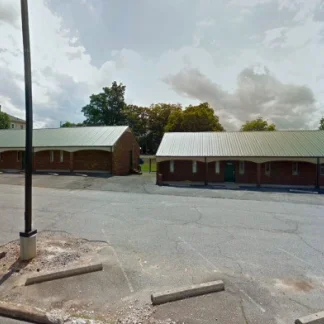Behavioral Associates of Asheboro
Behavioral Associates of Asheboro is a private rehab located in Asheboro, North ...
Triad Therapy is an outpatient treatment specializing in mental illness and addiction issues. Services include Assertive Community Treatment Team, medication management, substance abuse IOP and outpatient therapy. Triad Therapy is located at Asheboro, North Carolina.
Triad Services may include Assertive Community Treatment Team (ACTT), Clinical Comprehensive Assessment (CCA), Community Support Team (CST), Intensive In-Home (IIH), medication management, outpatient therapy and substance abuse intensive outpatient program.
Contact us for more information: (336) 629-7774

Connect with Triad Therapy by calling their admissions team directly.
(336) 629-7774 Website Get DirectionsThe Commission on Accreditation of Rehabilitation Facilities (CARF) is a non-profit organization that specifically accredits rehab organizations. Founded in 1966, CARF's, mission is to help service providers like rehab facilities maintain high standards of care.
CARF Accreditation: Yes
Assertive Community Treatment (ACT) is a structured way of helping those with major mental illnesses and/or substance abuse by bringing services directly to the patient in home. Instead of hospitalization or an outpatient program, staff members like social workers, psychiatrists, and counselors come directly to the patient’s house for treatment. ACT is used primarily for those with severe and persistent mental illness like schizophrenia or bipolar disorder, some of whom also contend with substance abuse. ACT can be short- or long-term (months to years), and provides the same multidisciplinary, 24/7 staffing of a psychiatric unit, but in the comfort of the patient's own home and/or community.
Group therapy is any therapeutic work that happens in a group (not one-on-one). There are a number of different group therapy modalities, including support groups, experiential therapy, psycho-education, and more. Group therapy involves treatment as well as processing interaction between group members.
In individual therapy, a patient meets one-on-one with a trained psychologist or counselor. Therapy is a pivotal part of effective substance abuse treatment, as it often covers root causes of addiction, including challenges faced by the patient in their social, family, and work/school life.
Group therapy is any therapeutic work that happens in a group (not one-on-one). There are a number of different group therapy modalities, including support groups, experiential therapy, psycho-education, and more. Group therapy involves treatment as well as processing interaction between group members.
In individual therapy, a patient meets one-on-one with a trained psychologist or counselor. Therapy is a pivotal part of effective substance abuse treatment, as it often covers root causes of addiction, including challenges faced by the patient in their social, family, and work/school life.
In individual therapy, a patient meets one-on-one with a trained psychologist or counselor. Therapy is a pivotal part of effective substance abuse treatment, as it often covers root causes of addiction, including challenges faced by the patient in their social, family, and work/school life.
Behavioral Associates of Asheboro is a private rehab located in Asheboro, North ...
ADS Alcohol & Drug Services is a CARF-accredited substance abuse rehab cente...
Randolph County Day Reporting Center is a public rehab located in Asheboro, Nort...
Daymark Recovery Service, situated in Asheboro, North Carolina, is a reputable d...